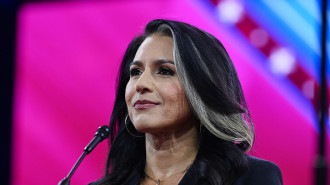Bill Gates 'endorses Riyadh's powerful plan' to end oil-dependency
The kingdom's Vision 2030 took central focus at the two-day event that elaborated programmes to boost the country's private sector and create opportunities for the growing number of young people both in the kingdom and the Middle East.
With oil trading below $50 a barrel, the Saudi plan seeks to push the private sector’s contribution to the national economy from 40 percent to 65 percent by 2030.
Gates encouraged the "innovative" Saudi youth in his speech to work on achieving the "powerful set of goals" laid out by Vision 2030.
"The future of any country is about its young people; in Saudi Arabia that is even truer because you are the majority and you are more educated and inquisitive than any generation that has come before," Gates said.
"Vision 2030 is a powerful set of goals, but it will be the young people whose innovative work is needed to achieve them; that means lots of studying and getting the new skills that will equip you for the evolving job market, it means building on the deeply engrained values of giving back, caring for others and working toward a common goal," Gates added.
 |
Two thirds of Saudi Arabia's population is under thirty years of age and youth unemployment in the country stands at a staggering 12 percent |  |
While two thirds Saudi Arabia's population is under thirty years of age and youth unemployment in the country stands at a staggering 12 percent. Meanwhile, around 33 percent of Saudi women remain out of a job – the highest in the world.
The two-day forum presented solutions to the region's unemployment challenges, as the UN's envoy urged Arab leaders to create opportunities for youth employment.
"The Arab world must create 60 million jobs by 2020 to meet the employment needs of its youth," said Ahmad Alhendawi, the United Nations Secretary-General's Envoy on Youth.
"The majority of the people in the Middle East today are young people."
Since 2014, global oil prices have collapsed by more than half, leaving Saudi Arabia with a record deficit last year.
The kingdom, the world's biggest oil exporter, has been cutting government spending and re-orienting its economy after the collapse over the past two years of the global oil price.
Last month, the cabinet also cut by 20 percent the salaries of ministers and froze the wages of lower-ranked civil servants.
Almost twice as many Saudis are employed in the bloated public sector - where hours are shorter and leave longer - than in private firms.
In April, the king's son and one of the most powerful men in the kingdom, Deputy Crown Prince Mohammed bin Salman, announced the wide-ranging Vision 2030 plan to diversify the economy.







 Follow the Middle East's top stories in English at The New Arab on Google News
Follow the Middle East's top stories in English at The New Arab on Google News
![Israel demolished homes in the Silwan area [Getty]](/sites/default/files/styles/image_330x185/public/2024-11/GettyImages-2183868368.jpg?h=199d8c1f&itok=TweR8vd0)

